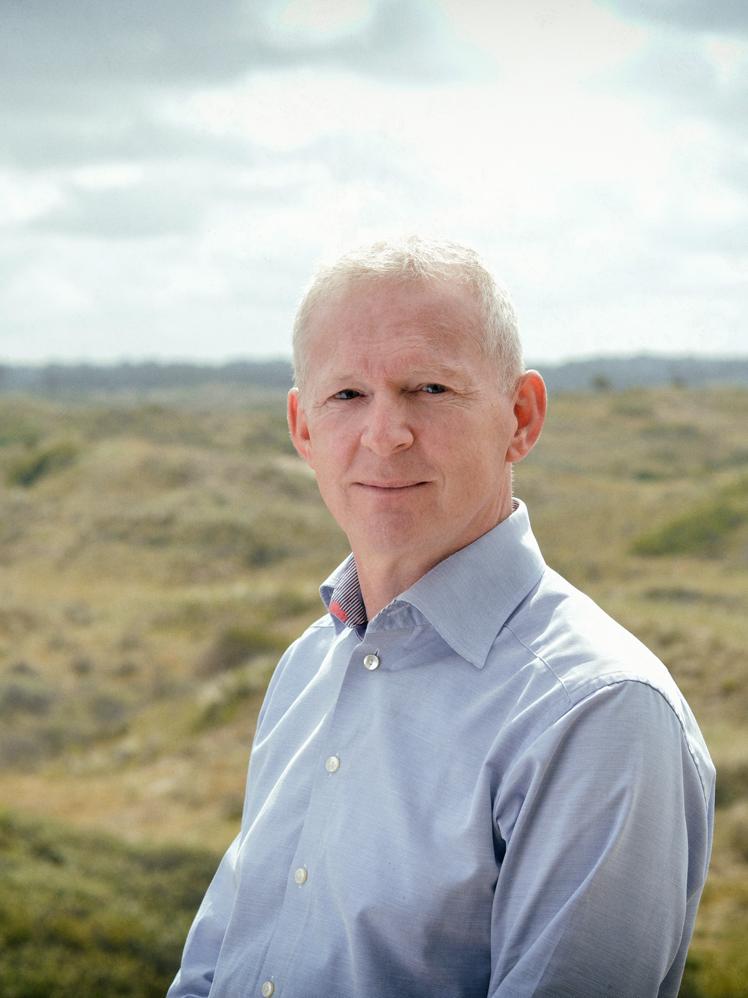How does the pension fund approach socially responsible investment? Does it cost money or does it make money? What does the pension fund aim to achieve? Daan van der Mee, Regional Finance Manager Europe would like to know more about it. Jan Ambergen, member of the pension fund board, answers.
How does the pension fund view socially responsible investment (SRI)?
The central goal is a good pension for all members. This must be done carefully, with a sensible balance of risk and security. We are a small fund, and it is natural to wonder how much you can do in terms of sustainability. But looking at the world around us, we don't think there is any choice. Even a small fund can have an impact. Our principles are laid down in our SRI policy, which we use as our assessment framework.
Does the pension fund choose responsible investment just to limit risks or also to do good things?
The answer is both. On the one hand, we limit our risks by investing less in companies that have fallen behind in terms of climate or working conditions. They could face a sharp fall in market value. We saw this, for example, in the IPO of meal delivery company Deliveroo. Investors punished that company for the poor treatment of its delivery staff. But at the same time we want to contribute to a good future for current and future generations
The argument was always that responsible investment was good for your conscience but not for your wallet. Does that contrast still exist?
‘No, not really. Companies that do business responsibly and make the right choices do relatively well on the stock market and also have the best prospects.’
How far is the pension fund willing to go?
Given the choice, we will go for a fund that performs better in responsible investment, including in traditional sectors. Think of oil companies: some are more innovative than others regarding renewable energy. We are not falling behind, but we are not ahead either. We could decide to invest only in wind farms, but we are not ready for that yet. That middle way suits us.

What does the Pension Fund do in practice?
First of all, in all important investment decisions, we also look at the different aspects of responsible investment. Last year, we started investing more in funds that clearly consider climate objectives. For example, the investments and government bonds we use to limit our interest rate risk have been expanded to include clear green investments, such as wind farms. And we do that without increasing our risk.
How does it work if you want to make your share portfolio more sustainable?
We do this step by step because otherwise it gets very expensive. The goal is that our share portfolio - about fifteen per cent of our total portfolio - will consist entirely of investments in companies that are more active in sustainability than merely subscribing to the UN Sustainable Development Goals and the Paris Climate Accord.
The pension is there for the members, who also have an opinion about matters such as sustainable investment. Does the board take this into account?
‘We do everything we do in the interest of all our members. So it is important to know what they think about it. The topic was highlighted in our member survey last year. That showed that our approach is well in line with the views and wishes of our members. So we are on the right track

Does the pension fund also consider IFF's vision? The company is 'on a mission for good, creating a better world’
This vision revolves around four themes: equal rights for men and women and the empowerment of girls and women; sustainable production and consumption; tackling climate change; and protecting forests, ecosystems and biodiversity. When we make choices, we always weigh these issues.
What can the pension fund do if something dramatic suddenly happens, such as the war in Ukraine?
IFF is also active in Ukraine; we have colleagues from that country who also have family there. If they ask what the pension fund can do and actually does, you have to have a good answer.'
At the time, we established our risk within a week. That showed that 0.3% of our entire portfolio, worth just under half a million euros at the time, was invested in Russia-related stocks. We clearly expressed our opinion to our asset managers, but due to the closure of the Russian stock exchange, it was not possible to sell. So we had to take that loss.
This terrible war also makes shares in the arms industry more popular again. Does that lead to other choices for the pension fund?
We are still following the same consistent line. We do not invest in companies that do the wrong things, such as producing cluster bombs.